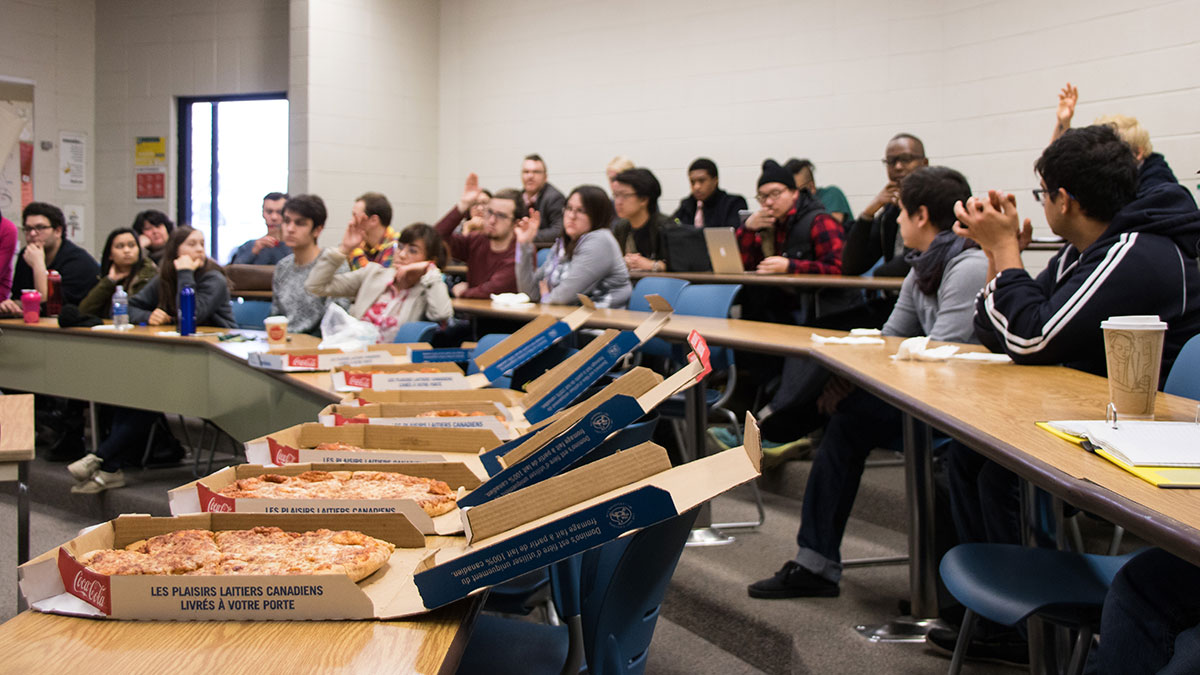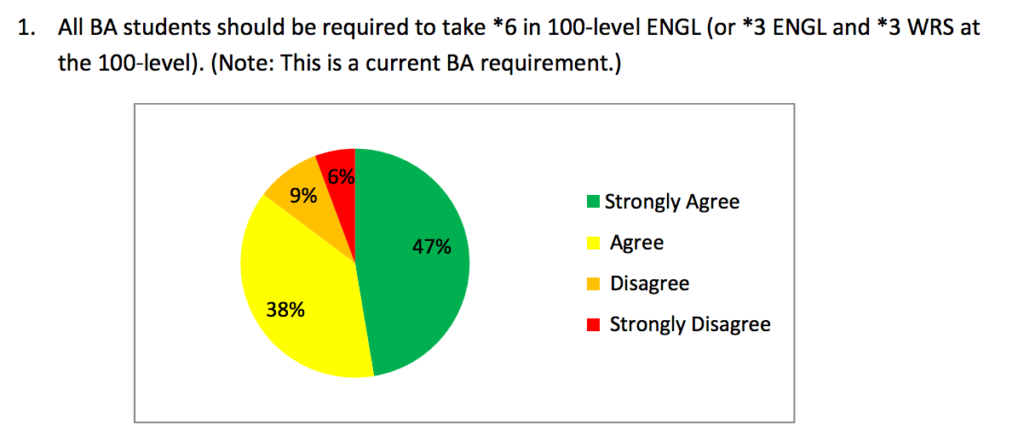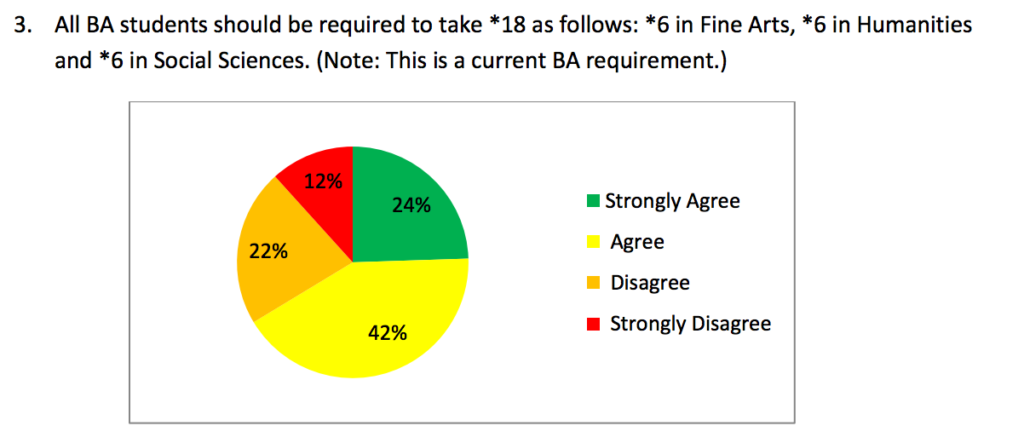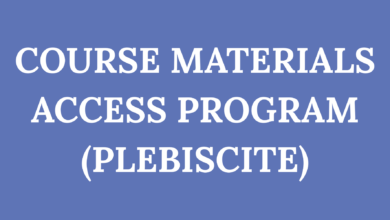Students likely to vote ‘Yes’ on the BA Renewal
 Christina Varvis
Christina VarvisArts Faculty Council is convening Thursday to decide whether the Bachelor of Arts should keep its current core requirements, or if it should go with a more flexible model.
If the changes pass, incoming Arts students for 2018-19 would only need three credits of English or Writing Studies to graduate, not six. They would also no longer need to fulfil the current “Breadth and Diversity” requirements: six credits of humanities, six credits of social sciences, and six credits of fine arts. The new proposal also includes a six-credit language other than English (LOE) requirement.
Read more about the current proposal: Here’s what you need to know about the new BA
Student Arts Faculty Council members are favouring the new model for its flexibility.
Bismillah Kiani, an Arts representative on Students’ Council and former president of Organization for Arts Students and Interdisciplinary Students (OASIS), will be voting yes. In a Students’ Council meeting on November 22, she said a big part of her decision has been hearing about struggles Arts transfer students have had when coming into the program from different institutions and faculties.
“The U of A does have one of the highest credit requirements in comparison to other undergraduate Arts programs,” she said. “The changes will make it easier for students to transfer in.”
Kiani feels that the BA Renewal could have had more student consultation, but said she’s satisfied that students were listened to after consultation indicated they wanted to keep an English requirement and an LOE requirement.
Talks of changing BA core, an initiative called the BA Renewal, have been happening since 2011. The initiative produced a model in 2015-16 that involved cutting all of the program’s core requirements, and instead using a system of “thematic pathways” to guide students in their course selection.
The BA that will be voted on in 2016-17 has a little more structure that what was proposed last year, but less than what’s currently laid out for students.
Read more from February 2016: Staff, students bring concerns to BA Renewal Town Hall
Read more from March 2016: Students host BA renewal town hall
Read more from October 2016: Final town hall for BA renewal reveals concerns over Arts advising
Reed Larsen, an Arts representative on Students’ Council, said he’s undecided on the BA Renewal, and will likely decide his vote after questioning in Arts Faculty Council. He wants to see the faculty commit to creating a more robust advising system by putting resources towards hiring more advisors.
“If their commitment is only to have an online system to solve the advising deficit, then it’s in my mind a ‘No’ to throw this challenge at students,” he said.
Haiqa Cheema, the current president of OASIS is voting in favour. Like Kiani, Cheema is prioritizing flexibility for students. She and other OASIS executives found that responses from an online feedback form and conversations with students in Humanities Building that fewer core requirements were welcomed.
Arts Faculty Council, held at 2:00 p.m. in Council Chambers (2-100 University Hall) on November 24, is open to the public. Only voting members will have a say in the BA Renewal, however. Council membership comes up to between 350 and 400 individuals, as it includes all academic staff members. As far as students go, there are supposed to be 35 undergraduates, who make up 10 per cent of the council. The actual proportion of students may be different in practice, as only 27 undergraduate seats are currently filled (according to the online roster), and not all of the faculty’s 352 academic staff members may show up.
Some professors, such as Katherine Binhammer, are strongly against the proposal. In an open letter published November 12, the English and Film Studies professor called the BA Renewal a “disservice to our students” and cited that student feedback was ignored when it came to taking out requirements. She suggested that if flexibility is the concern, then the faculty should cut all language and Breadth and Diversity Requirements in half.


Read more: Full Student Survey Results
Cheema said professors’ concerns aren’t hers to vote on, and maintained that she’ll be voting according to the data OASIS has found. She’s fine with the removal of three credits of English, and said that more introductory Arts courses should be teaching essay writing for their discipline.
“I don’t think it’s the responsibility of the English department to make sure that you know English for your other subjects,” she said. “I feel that other departments have to step up their game. Like in POLI 101 (Introduction to Politics), I should be taught how to write a political science paper — not English.”
For more on what professors had to say, check out our video:
Correction: A previous version of this article stated the changes to the BA would take effect in 2017-18. The changes take effect in 2018-19, which the article now states.




